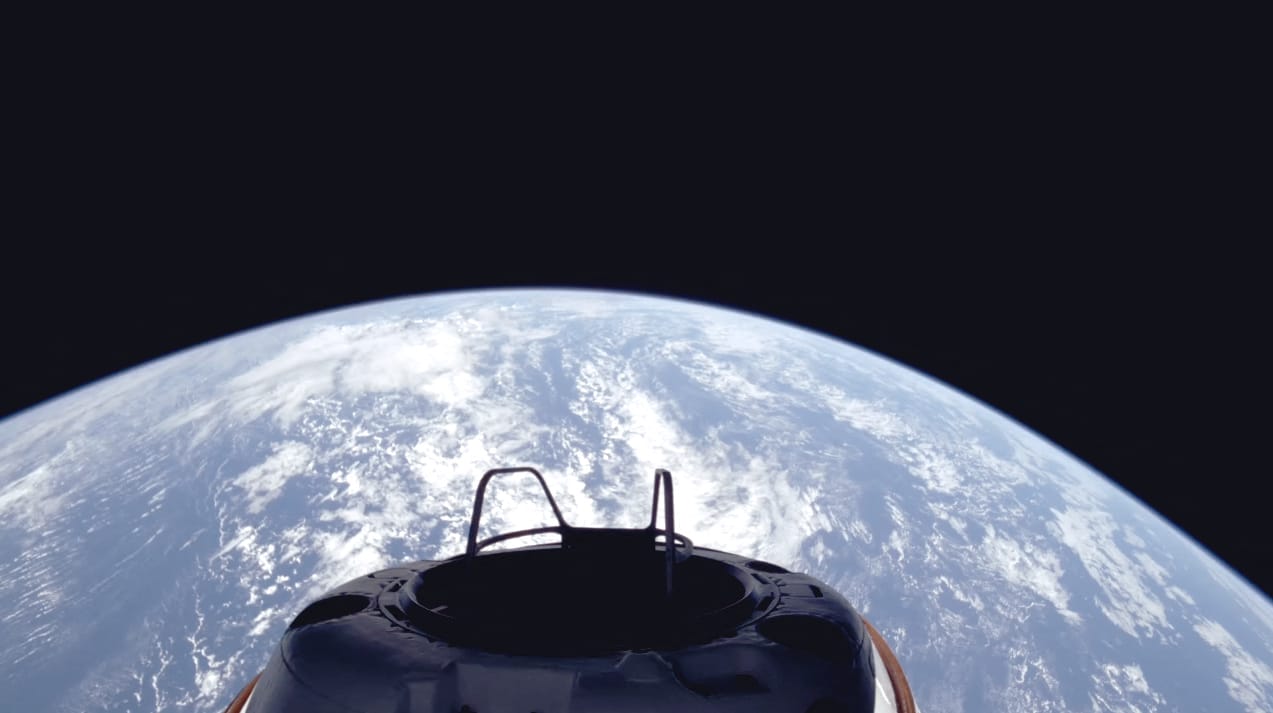
This handout picture launched by SpaceX on September 10, 2024 exhibits a view of Earth and the Dragon capsule’s Skywalker shortly after the Polaris Daybreak crew launched into orbit. Agence France-Presse
WASHINGTON — A personal crew set out on an audacious orbital expedition Tuesday, journeying deeper into the cosmos than any people in half a century as they put together for the primary ever spacewalk by non-professional astronauts.
The SpaceX Polaris Daybreak mission, led by Shift4 Funds CEO Jared Isaacman, launched from the Kennedy House Middle in Florida and may by the top of its first day attain a peak altitude of 870 miles (1,400 kilometers).
That’s practically 3 times farther from Earth than the Worldwide House Station, as their Crew Dragon spaceship navigates by parts of hazardous, high-radiation Van Allen belt throughout its roughly five-day trek.
READ: House station’s first all-private astronaut staff welcomed aboard orbiting platform
And radiation isn’t the one problem the four-member staff faces.
Article continues after this commercial
“Dragon will journey repeatedly by the orbital altitudes of over 10 thousand satellites and bits of area particles,” SpaceX founder and CEO Elon Musk wrote on X. “No room for error in our calculations.”
Article continues after this commercial
The spotlight of the voyage is slated for as early as Thursday: the primary ever spacewalk by civilians, outfitted in glossy, newly developed SpaceX extravehicular exercise (EVA) fits with heads-up shows, helmet cameras and superior joint mobility methods.
READ: Personal astronaut crew, together with first Arab girl in orbit, heads for splashdown
SpaceX has scheduled the EVA for 0623 GMT on Thursday, with a backup window on Friday on the similar time.
Because the Crew Dragon capsule lacks an airlock, your complete crew can be uncovered to the vacuum of area for round two hours, as two crewmates enterprise out, in flip, for 15 to twenty minutes every.
Excessive radiation zone
Earlier Tuesday, the capsule blasted off atop a Falcon 9 rocket after climate delays pushed again the launch a number of instances.
Applause broke out throughout the mission management middle because it separated efficiently from the principle engine and the primary glimpses of Earth got here into view.
As they put together for his or her spacewalk, the crew have been tasked with gathering information on decompression illness and the well being results of the Van Allen radiation belt, a area teeming with high-energy charged particles.
Whereas venturing deep into area, the crew gained’t exceed the distances reached throughout the Apollo missions to the Moon from 1968 to 1972.
The farthest, 248,655 miles, was set by the Apollo 13 crew in 1970 as they looped across the Moon throughout an emergency return to Earth following an onboard explosion.
Two years’ preparation
Isaacman has remained tight-lipped on his complete funding within the challenge, although stories recommend he paid round $200 million for the SpaceX Inspiration4 mission in September 2021, the primary all-civilian orbital mission.
Rounding out the staff are mission pilot Scott Poteet, a retired US Air Power lieutenant colonel; mission specialist Sarah Gillis, and mission specialist and medical officer Anna Menon — each SpaceX engineers, who’ve now traveled farther from Earth than any girls earlier than them.
The quartet underwent greater than two years of coaching in preparation for the landmark mission, logging lots of of hours on simulators in addition to skydiving, centrifuge coaching, scuba diving, and summiting an Ecuadoran volcano.
Polaris Daybreak is the primary of three missions underneath the Polaris program, a collaboration between Isaacman and SpaceX.
The ultimate mission is slated to be the primary crewed flight of SpaceX’s Starship prototype — the rocket it envisions as the important thing to future Mars colonization.
Along with their spacewalk, the crew will check laser-based satellite tv for pc communications between the spacecraft and Starlink’s satellite tv for pc constellation, aiming to boost area communication speeds.
They’ll additionally perform 36 scientific experiments, together with assessments on contact lenses with embedded microelectronics to observe adjustments in eye stress and form — including to the rising physique of area analysis aimed toward advancing human exploration past Earth.

